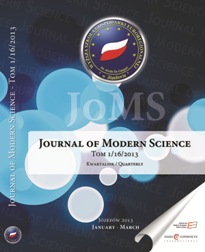Current Legal Control of Corruption under the Criminal Code of the Slovak Republic.
Current Legal Control of Corruption under the Criminal Code of the Slovak Republic.
Author(s): Jozef ČentéšSubject(s): Social Sciences, Sociology, Criminology
Published by: Wydawnictwo Akademii Nauk Stosowanych WSGE im. A. De Gasperi w Józefowie
Keywords: corruption; bribery; social justice; international business transactions; combating corruption;
Summary/Abstract: Within meaning of the international documents on corruption, it may be reasonable to point out that this negative and dangerous social phenomenon is a threat to the rule of law, democracy and human rights, undermining the system of good government, fairness and social justice, interfering with economic competition, restraining economic development, and also threatening the stability of democratic institutions and the moral basis of the society. At present corruption is by far more than a domestic matter, it is a transnational phenomenon affecting every civilized community and every economic system, therefore combating and controlling corruption call for international cooperation, namely because of the global consequences of rapid exchange of information and flow of financial resources, and the environmental impact. In addition, the European area is marked by very dynamic free movement of individuals, goods, capital and services. Therefore efficiently combating corruption may not be possible without a complex, multidisciplinary approach. This is so also because corruption is often connected with other forms of criminal activities, including organized crime and very dangerous economic crime damaging the financial interests of the European Communities. It is a generally well-known fact that bribery is widespread in international business transactions, including trade and investments, so there are serious moral and political concerns upsetting the effective organization of society and deforming the conditions of international economic competition. One of the effective measures in combating corruption based on a complex and multidisciplinary approach is unquestionably criminal legislation of various countries able to deal with corruption in its wide-spectrum of forms, and thus also to respond to various conventions regarding international aspects of this harmful social phenomenon. I am convinced the same consideration criteria are inherently contained also in penal sanctions for corruption under the Criminal Code of the Slovak Republic dealt with in this paper in a detailed analysis of the domestic legislation within the context of international conventions, and also in view of practical application of various provisions of the Criminal Code by the bodies active in criminal proceedings (.i.e. the police and prosecutor) and the courts.
Journal: Journal of Modern Science
- Issue Year: 14/2012
- Issue No: 3
- Page Range: 173-186
- Page Count: 14
- Language: English

